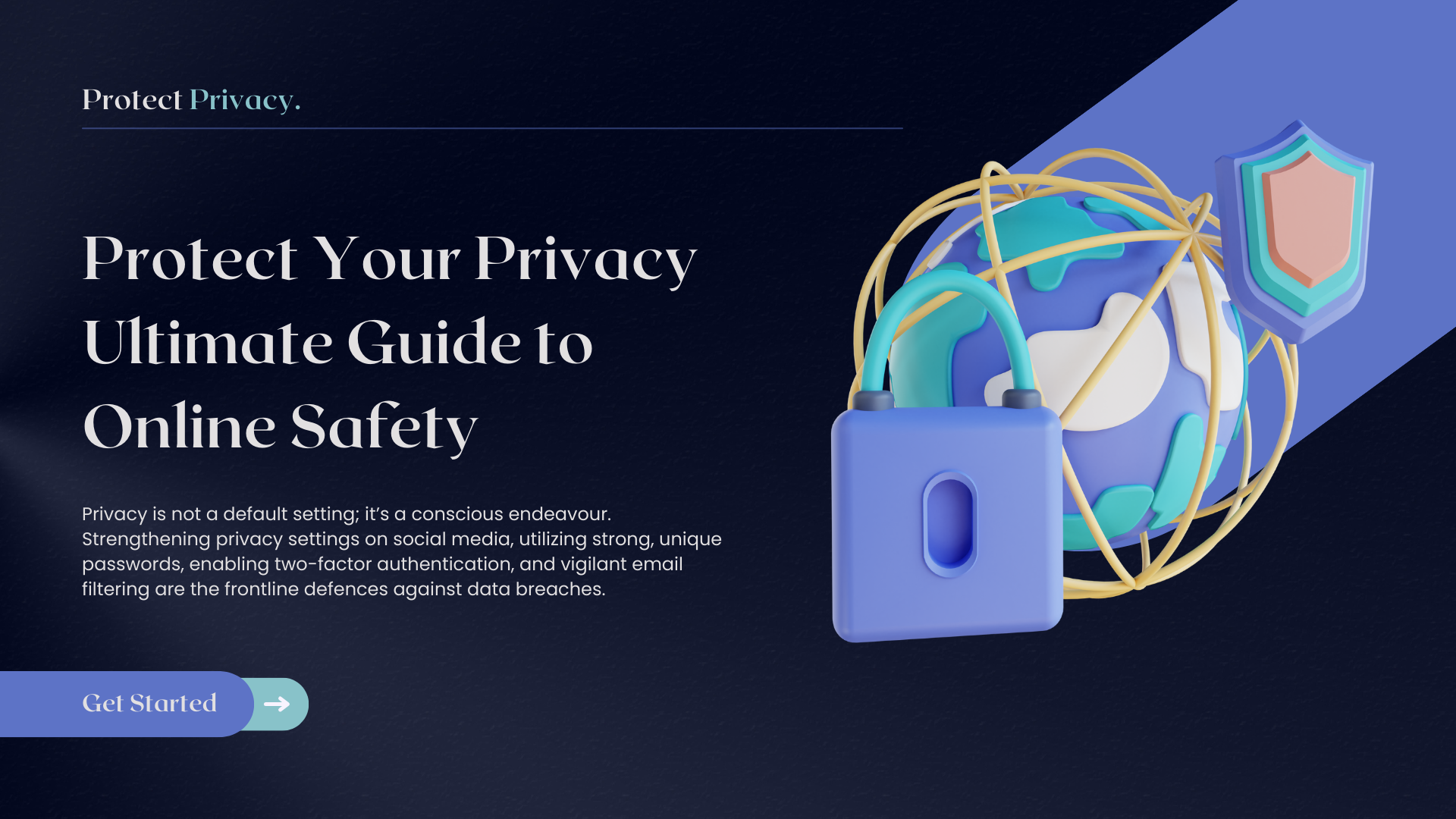Introduction
In today’s digital age, the privacy of personal information has become a pivotal concern. The ease at which data can be shared, accessed, and disseminated across the Internet is both a blessing and a curse. While the flow of information has revolutionized our world, it has also exposed us to a spectrum of privacy-related challenges, including identity theft, financial fraud, and cyberstalking. This article aims to unravel actionable steps to safeguard your personal information and foster a secure digital environment.
Understanding the Risks
To mitigate risks, comprehension of potential threats is paramount. Identity theft can lead to financial losses and legal complications. Financial fraud arises as hackers gain unauthorized access to your banking and credit card details. Cyberstalking and invasion of privacy are facilitated through the effortless accessibility of personal details online.
Common Ways Personal Information is Spread
The genesis of information spread is often rooted in social media oversharing, data breaches, public records, and online shopping. These platforms, though convenient, are hotbeds for personal data extraction and exploitation.
Steps to Protect Personal Information
Privacy is not a default setting; it’s a conscious endeavour. Strengthening privacy settings on social media, utilizing strong, unique passwords, enabling two-factor authentication, and vigilant email filtering are the frontline defences against data breaches.
Advanced Strategies
Venturing into advanced protections, consider adopting VPNs for secure browsing experiences. Avoid public Wi-Fi for sensitive transactions and consider monitoring and protecting financial information vigorously. Embrace anonymous payment methods to keep your financial data under wraps.
Legal Protections and Rights
On the legal frontier, instruments like GDPR and CCPA are monumental in data protection. Understand your rights and leverage these legal frameworks to augment your personal data security. Regulatory bodies are allies in this endeavour, ensuring corporations and entities adhere to data protection protocols.
Regular Monitoring and Maintenance
Privacy is an ongoing effort. Consistent updates of privacy settings, software enhancements, and vigilance in monitoring credit reports and online presence are integral in ensuring your personal information remains impervious to unauthorized access.
FAQs
Q1: How can I check if my personal information is available on the internet?
Answer: One proactive approach to assess your digital footprint is to conduct a self-audit. Type your name into various search engines and scrutinize the results. Explore social media platforms and other online databases to uncover where your information resides. Utilize tools like Google Alerts to receive notifications when your name or personal details appear online. Furthermore, you can engage professional services specializing in online privacy to conduct extensive audits and provide actionable insights for data removal and privacy enhancement.
Q2: Are privacy settings on social media platforms enough to protect my personal information?
Answer: While adjusting privacy settings is a commendable first step, it’s not an all-encompassing solution. Social media platforms are notorious for data breaches and privacy issues. It’s essential to practice caution in sharing sensitive information, even in a ‘private’ setting. Regularly review and update your settings, be mindful of the information you share, and remember that complete online privacy often requires a combination of strategic actions beyond just toggling privacy settings.
Q3: How do legal protections like GDPR and CCPA impact my online privacy?
Answer: GDPR (General Data Protection Regulation) and CCPA (California Consumer Privacy Act) have ushered in a new era of enhanced data protection and user rights. These regulations obligate businesses to uphold stringent data protection standards, providing users with the authority to access, delete, or restrict the processing of their personal data. Users can leverage these legal frameworks to request data removal or opt out of data selling, significantly enhancing their online privacy and control over personal information.
Q4: How often should I update my passwords, and how complex should they be?
Answer: Updating passwords regularly is crucial. A good practice is to change them every 3-6 months. Employ a mix of upper and lowercase letters, numbers, and symbols to create complex passwords. Avoid using easily guessable information like birthdays or common words. Consider using password managers to generate and store complex passwords securely, relieving the stress of remembering each one while enhancing your online security posture.
Q5: How effective are VPNs in protecting my personal information online?
Answer: VPNs are instrumental in safeguarding online privacy. They encrypt internet traffic, rendering data unreadable to unauthorized entities. VPNs mask IP addresses, protecting users from tracking, surveillance, and cyberattacks. However, it’s pivotal to choose reputable VPN providers that adhere to strict no-logs policies and robust encryption protocols to ensure optimal privacy and security.
These FAQs, embedded within the article, can offer readers additional insights and practical advice on navigating the complex landscape of online privacy. Each answer is designed to be comprehensive and informative, aligning with the article’s objective of empowering readers to take control of their personal information in the digital space.

